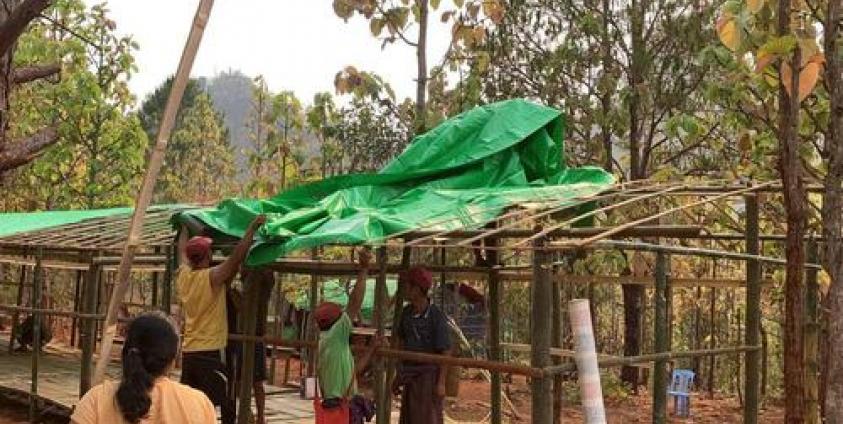Secretary No. 2 of Karenni State Interim Executive Council (IEC), U Banyar, announced that war-displaced residents in territories under resistance control in Karenni State, will have the opportunity to return to their homes.
"In various regions under the control of different resistance forces, we are devising suitable strategies for local residents to return home. This objective is actively being put into action, which entails separate negotiations with the respective controlling organizations in each area. Our focus remains on aiding war-displaced individuals in their journey back home by facilitating necessary arrangements and coordinating demining initiatives”, he elaborated.
On March 24, the Karenni Nationalities Defense Force (KNDF) declared that various anti-Junta forces now control 90 percent of Karenni State's territory. Despite this, KNDF spokesperson Tar Eh Soe emphasized the necessity of conducting area clearance operations in several of these controlled regions.
"Junta troops frequently engage in unprovoked shelling of areas they have lost control of, often targeting civilian areas and refugee camps. Throughout the 3-year revolution, such incidents have unfortunately become very common”, he said.
In Karenni State, efforts are underway to resettle locals in villages where security has been guaranteed. However U Banyar cautioned against the immediate return of residents to downtown wards in certain war-torn towns ,due to ongoing security concerns.
"We are still not permitting residents to return to certain towns, such as Shadaw. Mese is also not a safe option for resettlement due to security concerns. These are just a few examples. Pekon and Mongpai (Mobye) face similar obstacles. The risk of landmines remains significant too”, U Banyar explained.
It's been nearly three years since the resistance forces in Karenni State started battling the Junta fiercely following the coup. The Karenni Civil Society Network (KCSN) disclosed on March 15 that approximately 250,000 residents of Karenni State have been displaced by the armed clashes.
War-displaced populations continue to struggle to access food and meet other essential needs, while security concerns remain a pressing issue for those seeking to return home.







